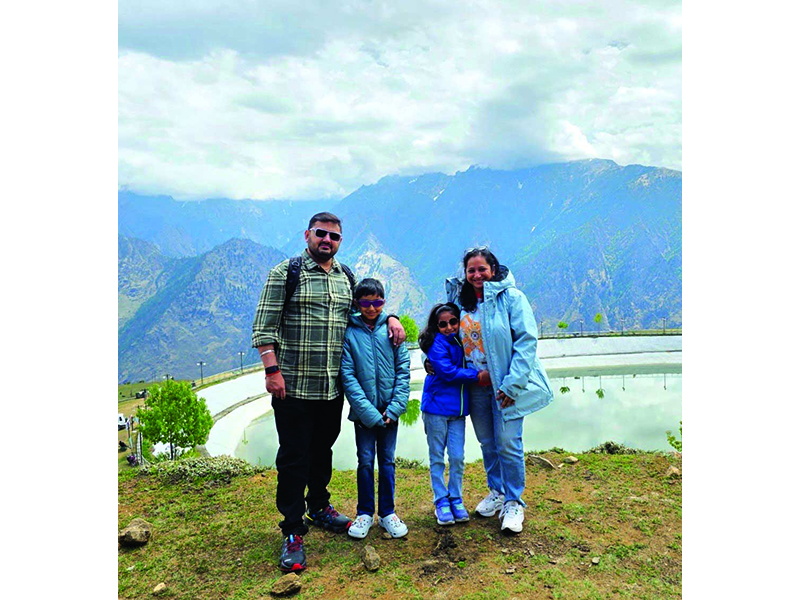PW invited parents from Bengaluru to share their insights on how they ensure their children strike a balance between academics with co-curricular activities

“In today’s competitive world, helping our children — Saanvi (class IX) and Garud (UKG) — maintain healthy balance between academics and co-curricular activities is essential for them to develop holistically. While academic success lays the foundation for future employment, co-curriculars nurture creativity, teamwork, and emotional intelligence. My children are encouraged to choose activities they enjoy, so they remain motivated. I also help them to draft a daily routine of academic and non-academic activities which helps us working parents to balance our time as well. With our guidance and support, I believe our children will transform into well-rounded individuals” — Aruna Gorur, HR Director

“We make it a point to involve our children – Janav (class IV) and Ruhani (class II) — in drawing up weekly routines including study, play, and free time with clear instructions to strictly follow them. While our son Janav (class IV) loves playing football, our daughter Ruhani (class II) enjoys basketball. They are encouraged to pursue any one sport that they genuinely enjoy rather than play multiple games and sports. We also insist that they maintain regular meal and bedtimes to learn time management skills” — Vidhi Bhagat, homemaker

“Every child is unique. For instance, my daughter Aarna (class VII) is passionate about classical Bharatnatyam dance. So we have enrolled her for weekend classes as a form of recreation after a grinding school week. Every weekday after school, my daughter revises her lessons at least for an hour to ensure that work does not pile up and she can avoid stress during exams. She also plays outdoors for at least half an hour daily. Remaining focused is her mantra that helps develop discipline, time management and perseverance” — Rituparna Dutta, homemaker

“We reserve weekends for our children — Chayank (13) and Naavya (8) — to engage in meaningful extra-curricular activities which allow them to remain focused on academics during the week. On weekdays when our children take breaks from studying by turning on their phones or watching TV, we encourage them to engage in more creative activities like playing guitar, writing short stories, singing songs, or drawing. As responsible parents, we lead by example by participating in mindful activities ourselves, reducing screen time, and creating a home environment that nurtures creativity and balance” — Sushanta Sarma, homemaker























